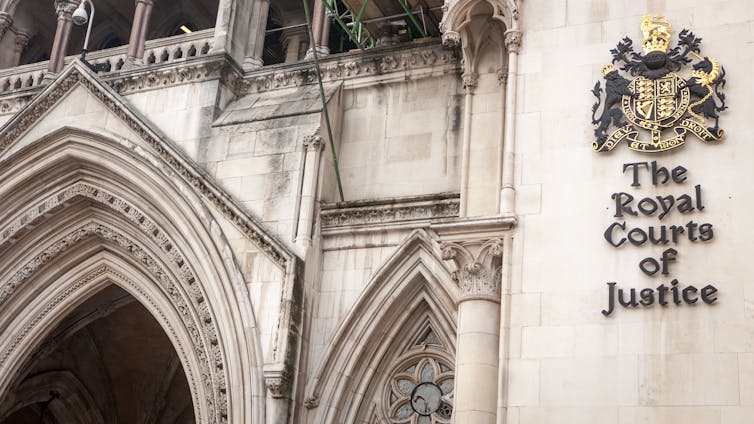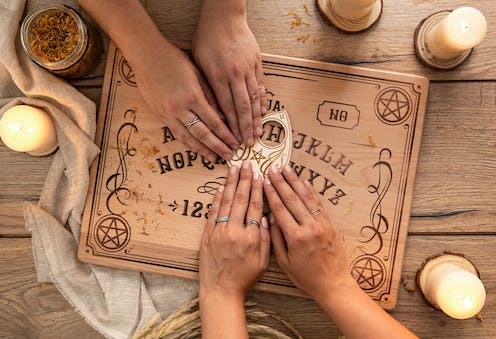Criminal justice systems vary around the world. But in many countries, for hundreds of years, people have faced trial by a jury of their peers. In England and Wales, a jury is a group of 12 members of the public who are called to sit as judges of fact in even the most serious criminal cases. Juries are presented with long-winded arguments by (generally) talented lawyers about the exact circumstances which may or may not have happened. They then have to answer one simple question: is the defendant on trial guilty or not?
High-profile cases may make one wonder just how juries reach their decisions. We can find a humorous answer in the case of Socrates. The ancient Greek philosopher was put on trial for “corrupting the minds of the youth” and brought before an ancient Athenian jury of around 500 people. It is said that Socrates launched a vigorous defence of himself before the jury returned a guilty verdict, at which point he supposedly insulted them. Unfortunately for him, the jury had not yet decided on the sentence and as a direct result of his insults they sentenced him to death.
While that was more than two thousand years ago and the exact details are questionable, juries today can behave just as, if not more, bizarrely. In my research on the role of the criminal jury in England and Wales, I’ve come across plenty of odd jury behaviour. Here are a few highlights.
Trial by spirit
In a brutal 1995 murder case, the jury was asked to consider whether Stephen Young had broken into the cottage of two newlyweds from Essex, Harry and Nicola Fuller. The prosecution alleged that after breaking in, Young shot them both to death, executing Nicola Fuller as she began to dial 999.
In horrific cases like this, juries usually consider witness testimony, DNA evidence and statements from the victims’ next of kin. But in the Young case, they turned to the supernatural.
While the jury was sequestered (when a court places a jury under police protection for the duration of a trial) four jurors met up in their hotel’s restaurant. Banned from watching television and having consumed a few drinks, they used a Ouija board that one juror had smuggled in to contact the spirits of the Fullers and ask who murdered them. The answer led to the jury delivering a guilty verdict. However, once the use of the Ouija board was revealed, the accused was granted a retrial, and promptly found guilty – this time, based on earthly evidence.
Trial by (social) media
We often talk about the impact of media on the outcome of a high-profile case, but what about social media? In a 2011 case, jurors were asked to consider serious drug charges against eight defendants.
One of the jurors found a defendant’s email address during deliberations and reached out to her. This led to the two adding each other on Facebook, where they discussed several things about the case including other defendants. The level of this misconduct led to not only the conviction being overturned, but the juror being sentenced to eight months imprisonment.
Trial by the Bible
The two cases above reflect poor judgement by one or a few errant jurors, but in the 2013 trial of Vicky Pryce, the entire jury’s behaviour was odd. Pryce was accused (and eventually convicted) of perverting the course of justice, after taking driving licence points for her then-husband, former energy secretary Chris Huhne, who had been caught speeding years earlier.
The jury presented the judge with a list of questions. While reports vary over their exact wording, the questions were at once bizarre and ignorant of the justice process. In addition to asking the judge to define “reasonable doubt”, they included:
- whether the jury could come to a verdict, not because of evidence that was presented at trial but just because they want to
- whether the jury can plainly speculate about the relevant facts, and arguably, the most outrageous:
- whether the jury could consider the core tenets of religion as the basis for their verdict instead of the law.
The court, dismayed by these “fundamental deficits of understanding”, discharged the jury and ordered a retrial.

What really goes on in jury deliberation rooms? pxl.store / Shutterstock
You may be wondering what the legal system itself has to say about this kind of behaviour. Surely, if a jury decided a case on something as random as flipping a coin (or using a Ouija board) their verdict should be overturned.
This was the issue brought to the House of Lords in a joint appeal for two cases where the secrecy of jury deliberations was a concern.
The judges were asked to consider on what grounds a jury’s verdict could be overturned, for example if they reached their verdict out of bias, or out of randomness – like a coin toss. The court said that while a verdict could be overturned if it was decided based on personal bias, it was less clear when it came to the coin toss question. In subsequent appeals, this question has never been raised again – meaning that theoretically, a jury can decide a case on flipping a coin as long as the jurors didn’t have any particular bias against the defendant.
These tales of jury behaviour are unusual for a reason – most verdicts are decided based on the facts of the case, and accepted without controversy. But the secrecy of the jury process means that we may never know exactly what goes on behind the closed doors of deliberation rooms.



 Trump Family Files $10 Billion Lawsuit Over IRS Tax Disclosure
Trump Family Files $10 Billion Lawsuit Over IRS Tax Disclosure  US Judge Rejects $2.36B Penalty Bid Against Google in Privacy Data Case
US Judge Rejects $2.36B Penalty Bid Against Google in Privacy Data Case  Missouri Judge Dismisses Lawsuit Challenging Starbucks’ Diversity and Inclusion Policies
Missouri Judge Dismisses Lawsuit Challenging Starbucks’ Diversity and Inclusion Policies  Supreme Court Signals Doubts Over Trump’s Bid to Fire Fed Governor Lisa Cook
Supreme Court Signals Doubts Over Trump’s Bid to Fire Fed Governor Lisa Cook  Newly Released DOJ Epstein Files Expose High-Profile Connections Across Politics and Business
Newly Released DOJ Epstein Files Expose High-Profile Connections Across Politics and Business  Citigroup Faces Lawsuit Over Alleged Sexual Harassment by Top Wealth Executive
Citigroup Faces Lawsuit Over Alleged Sexual Harassment by Top Wealth Executive  California Sues Trump Administration Over Federal Authority on Sable Offshore Pipelines
California Sues Trump Administration Over Federal Authority on Sable Offshore Pipelines  Norway Opens Corruption Probe Into Former PM and Nobel Committee Chair Thorbjoern Jagland Over Epstein Links
Norway Opens Corruption Probe Into Former PM and Nobel Committee Chair Thorbjoern Jagland Over Epstein Links  Minnesota Judge Rejects Bid to Halt Trump Immigration Enforcement in Minneapolis
Minnesota Judge Rejects Bid to Halt Trump Immigration Enforcement in Minneapolis  CK Hutchison Launches Arbitration After Panama Court Revokes Canal Port Licences
CK Hutchison Launches Arbitration After Panama Court Revokes Canal Port Licences  China Overturns Death Sentence of Canadian Robert Schellenberg, Signaling Thaw in Canada-China Relations
China Overturns Death Sentence of Canadian Robert Schellenberg, Signaling Thaw in Canada-China Relations  U.S. Lawmakers to Review Unredacted Jeffrey Epstein DOJ Files Starting Monday
U.S. Lawmakers to Review Unredacted Jeffrey Epstein DOJ Files Starting Monday  Federal Judge Signals Possible Dismissal of xAI Lawsuit Against OpenAI
Federal Judge Signals Possible Dismissal of xAI Lawsuit Against OpenAI  Trump Administration Appeals Court Order to Release Hudson Tunnel Project Funding
Trump Administration Appeals Court Order to Release Hudson Tunnel Project Funding  Federal Judge Blocks Trump Administration Move to End TPS for Haitian Immigrants
Federal Judge Blocks Trump Administration Move to End TPS for Haitian Immigrants  Jerome Powell Attends Supreme Court Hearing on Trump Effort to Fire Fed Governor, Calling It Historic
Jerome Powell Attends Supreme Court Hearing on Trump Effort to Fire Fed Governor, Calling It Historic  U.S. Condemns South Africa’s Expulsion of Israeli Diplomat Amid Rising Diplomatic Tensions
U.S. Condemns South Africa’s Expulsion of Israeli Diplomat Amid Rising Diplomatic Tensions 
































